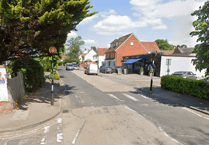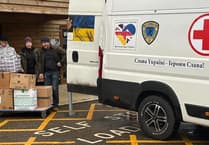Designed to inform homeowners and potential homebuyers of the local presence of knotweed and the potential risk to their property, Exposed has already been populated with thousands of infestations by leading Surrey-based Japanese knotweed firm Environet UK, which has operated across the UK for more than 20 years.
It allows members of the public to enter a postcode to discover the number of reported knotweed sightings nearby. Knotweed hotspots are clearly visible in yellow or red.
The public is encouraged to help populate the heat map, which is the only live tool of its kind, by reporting knotweed infestations using the ‘add sighting’ feature and attaching a photograph of the plant so it can be verified by experts.
Introduced to the UK in the 1840s as an ornamental plant, Japanese knotweed now grows rampantly along railways, waterways, in parks and gardens and is notoriously difficult to treat.
Its presence can prevent a mortgage lender approving a loan and therefore impact a property’s value by up to ten per cent.
Described by the Environment Agency as “indisputably the UK’s most aggressive, destructive and invasive plant”, Japanese knotweed’s rapid spread across the UK has prompted a parliamentary inquiry into its impact on the built environment, which is expected to release its findings this spring.
Where a high number of knotweed sightings appear nearby, potential homebuyers may wish to instruct a Japanese knotweed survey to check the likelihood of the property they intend to buy being affected or at risk of encroachment from infestations in the vicinity.
The presence of “noxious” knotweed was cited by Surrey County Council’s then-cabinet member for property and business services, and now leader, Tim Oliver in 2018 as the reason for closing Farnham Library’s tennis court.
However, if no sightings are shown locally, this does not guarantee knotweed is not present, as it may not have yet been reported.
Nic Seal, founder and MD of Environet, who created Exposed, said: “This heat map will help us build a nationwide picture of the Japanese knotweed problem and give the public the information they need to assess the risk in their local area.
“Surrey is a Japanese knotweed hotspot, particularly around larger towns such as Woking and Guildford.
“Exposed will be a useful tool for those buying and selling property in the county and local residents who want to be aware of infestations near their homes which could spread, putting their property at risk.”
Homeowners who are concerned about knotweed infestations near their home could consider buying a specialist Japanese knotweed indemnity policy, which covers them for the cost of treatment, repairs, legal costs arising from third party claims and any diminution of the property’s value, should knotweed arise.




